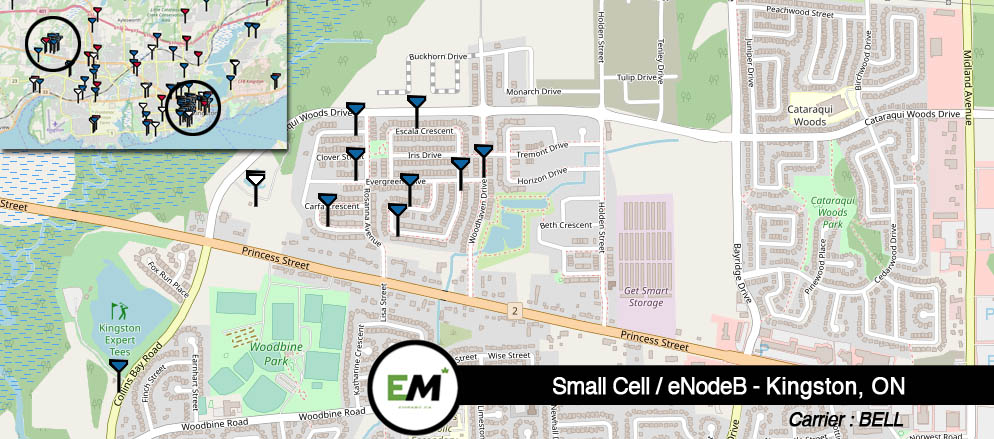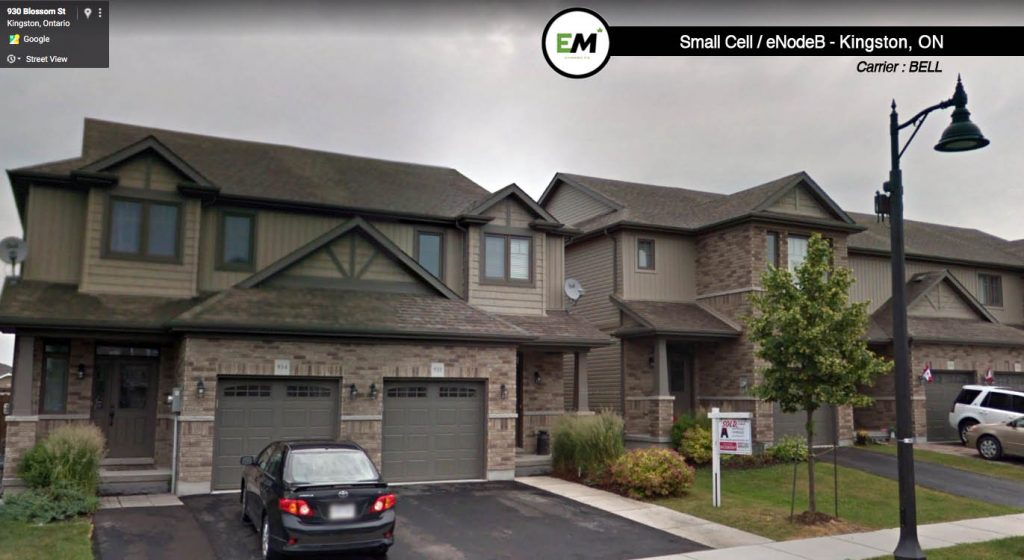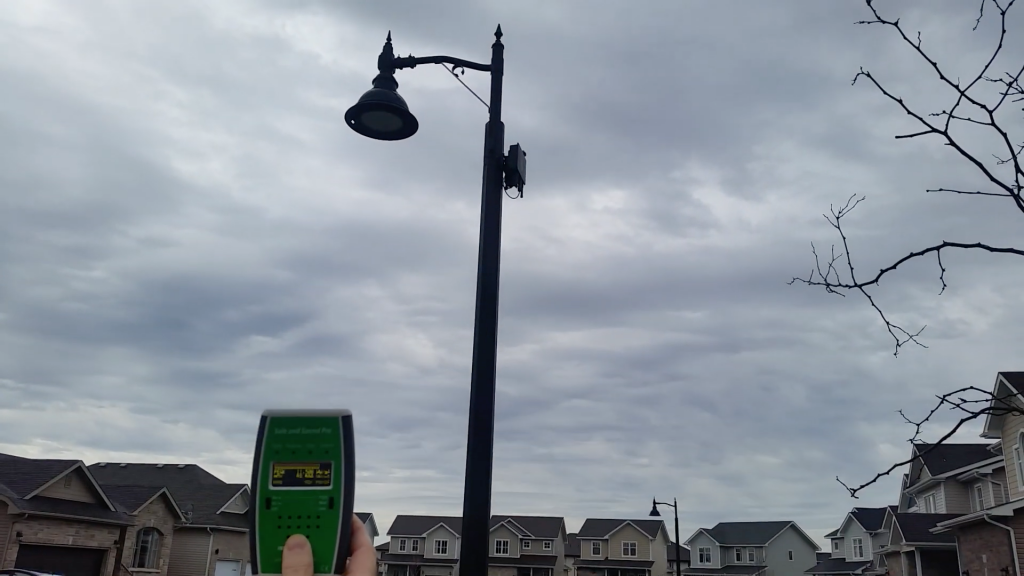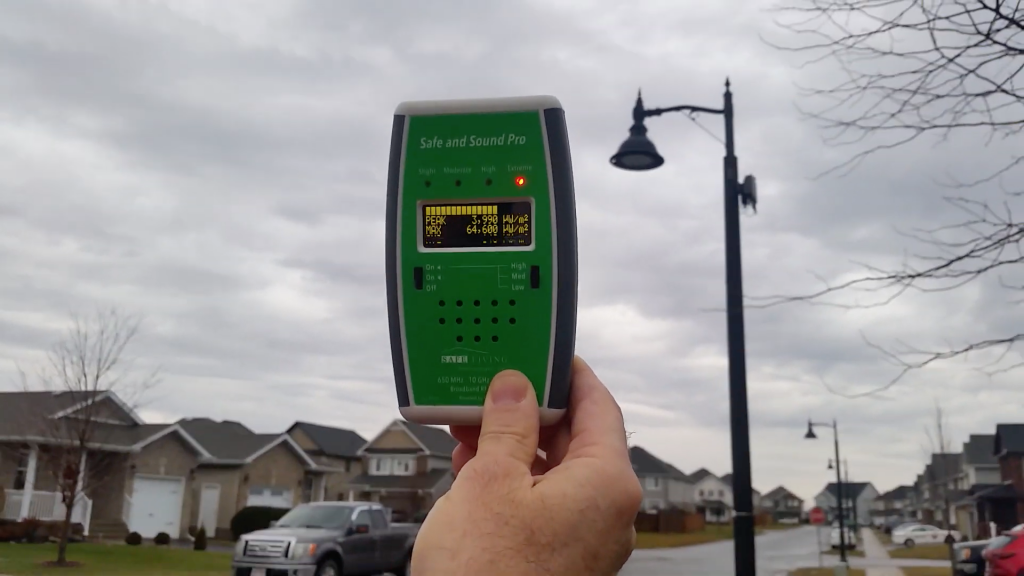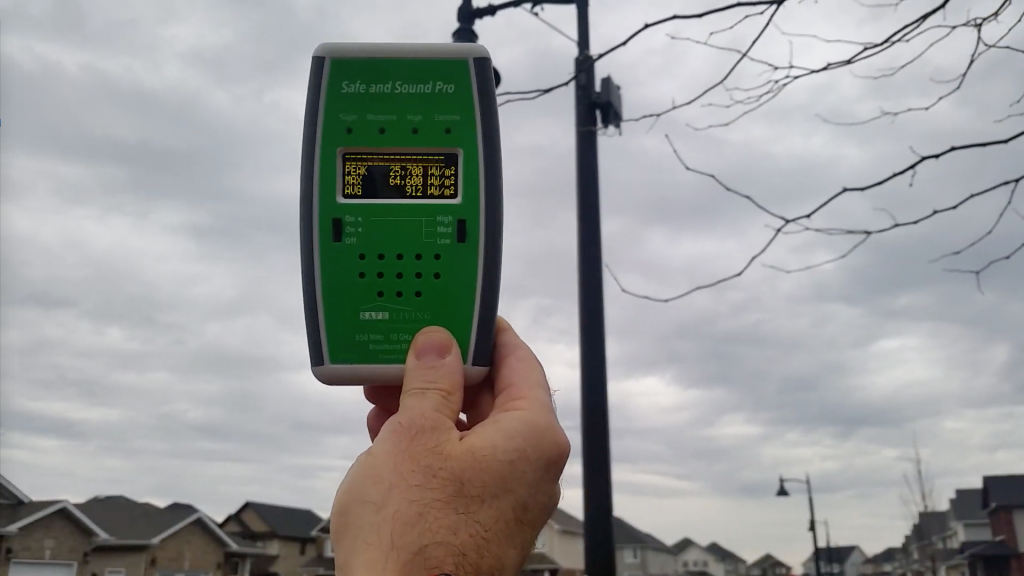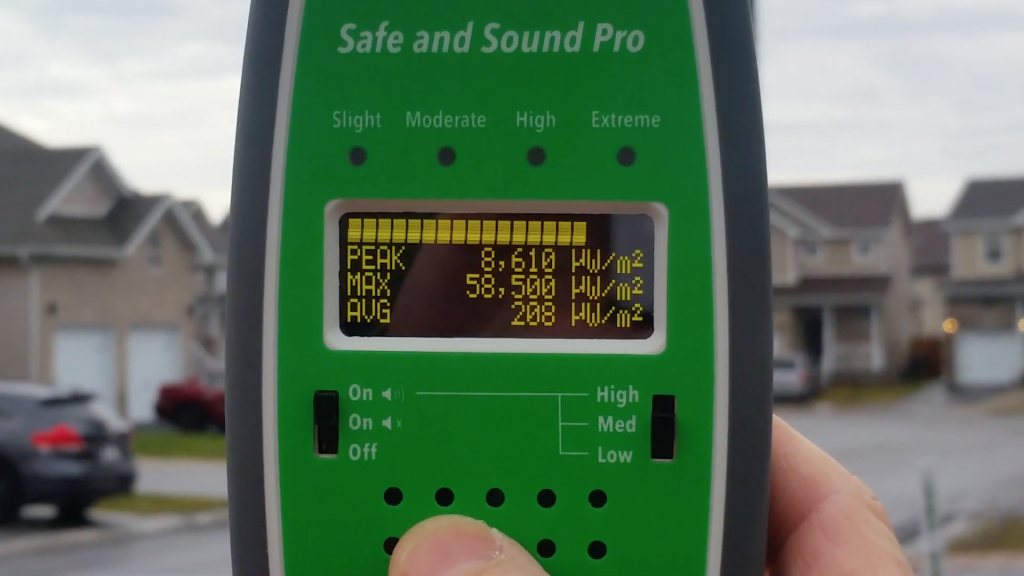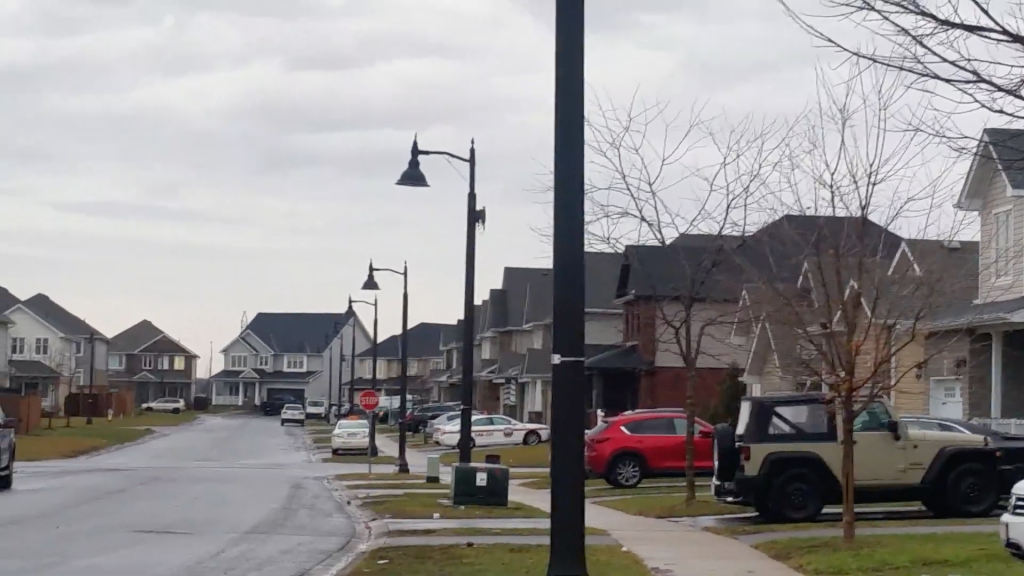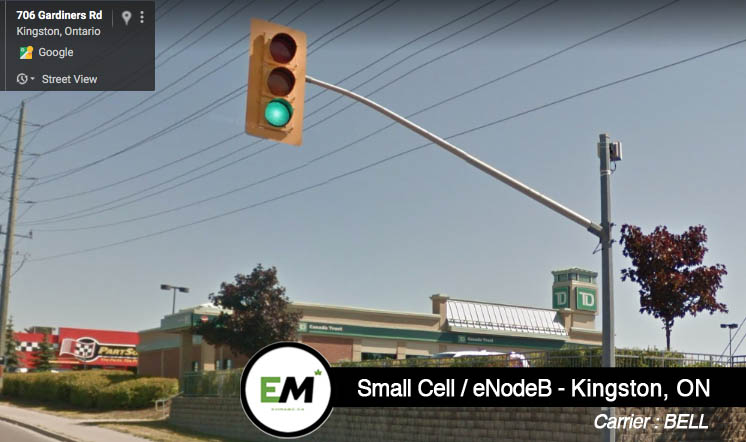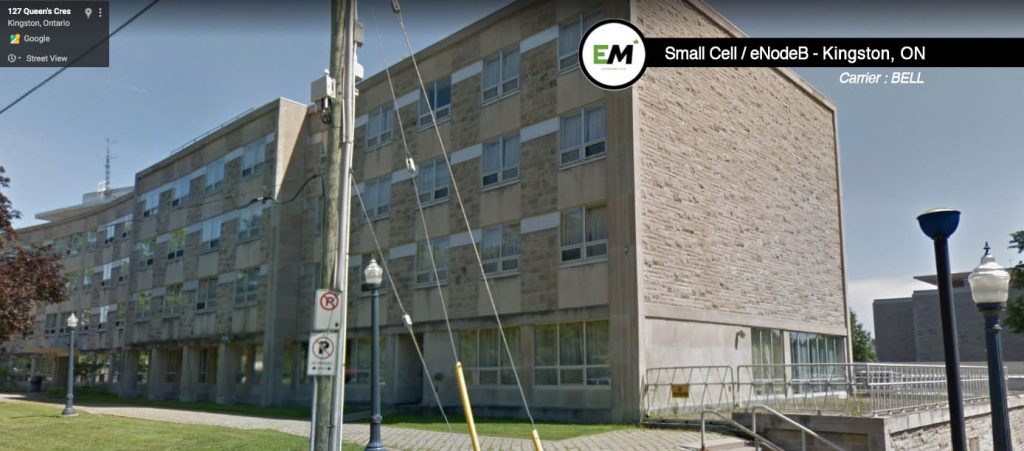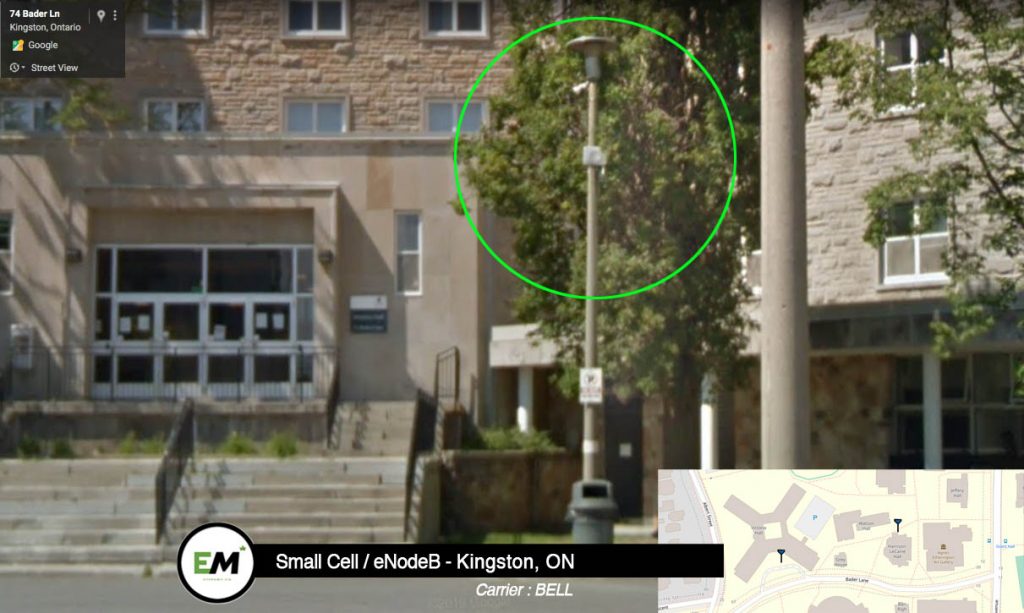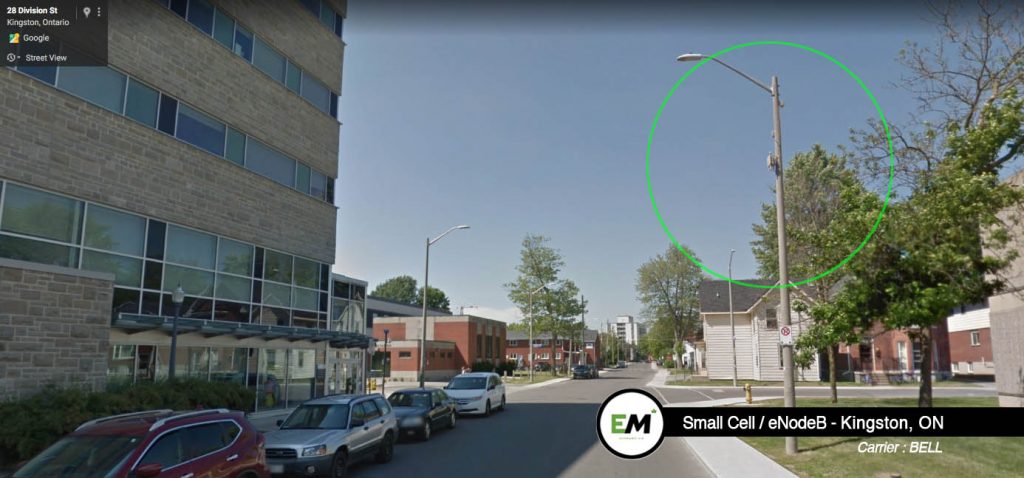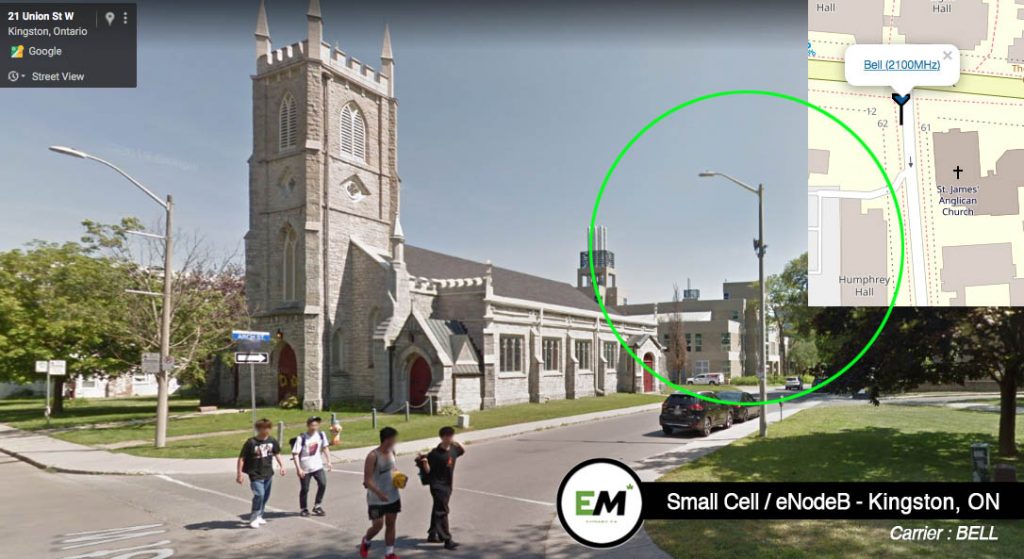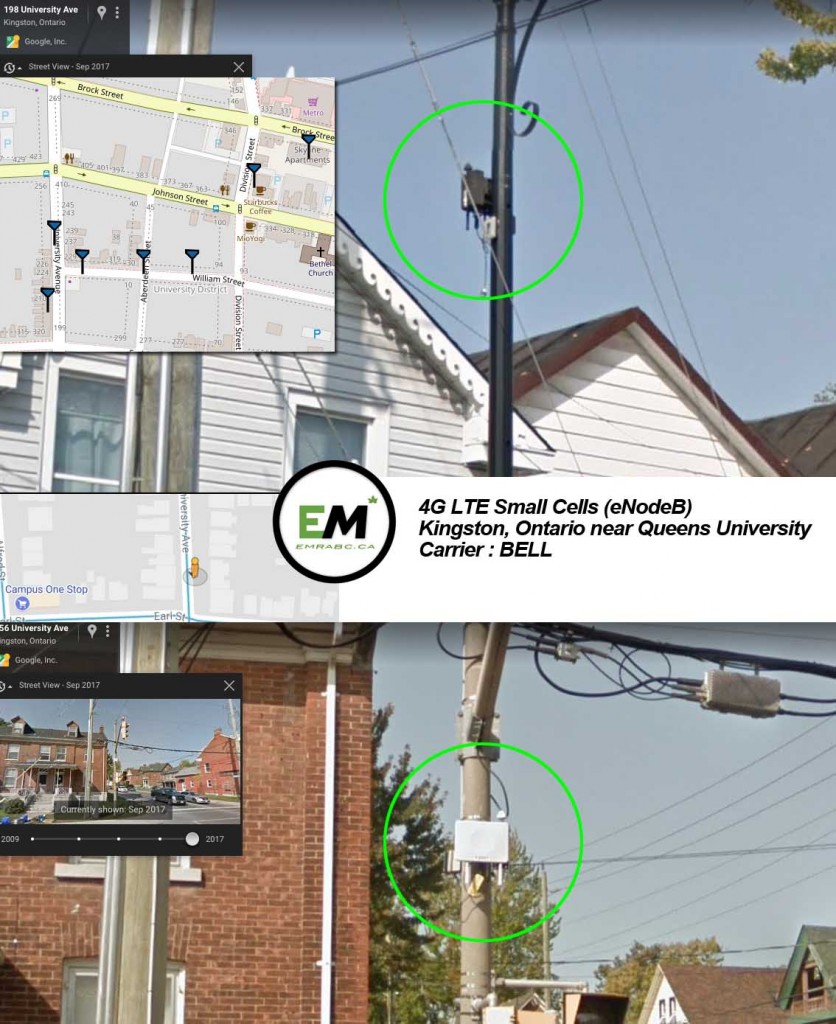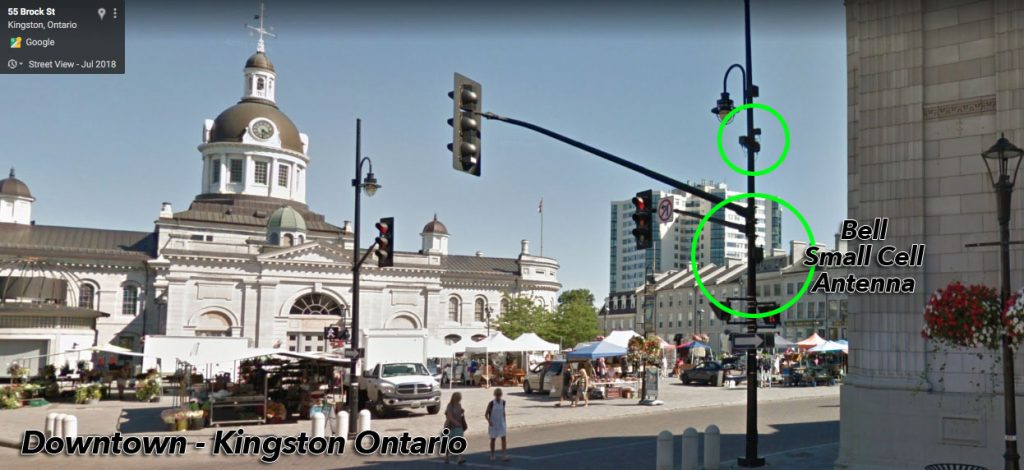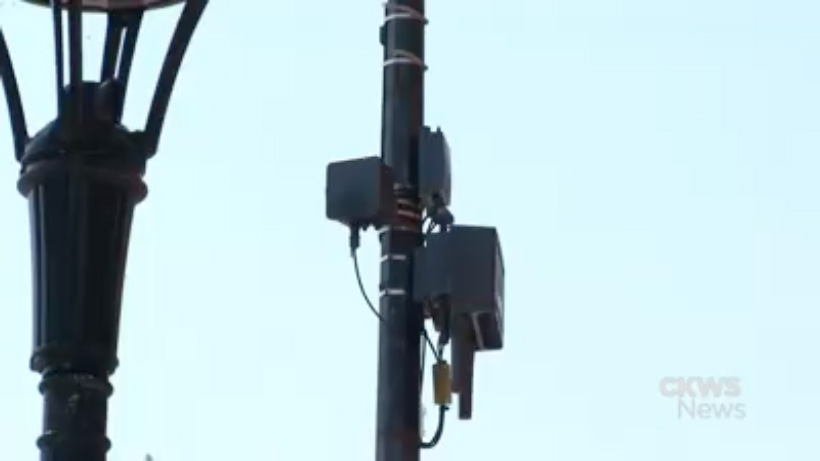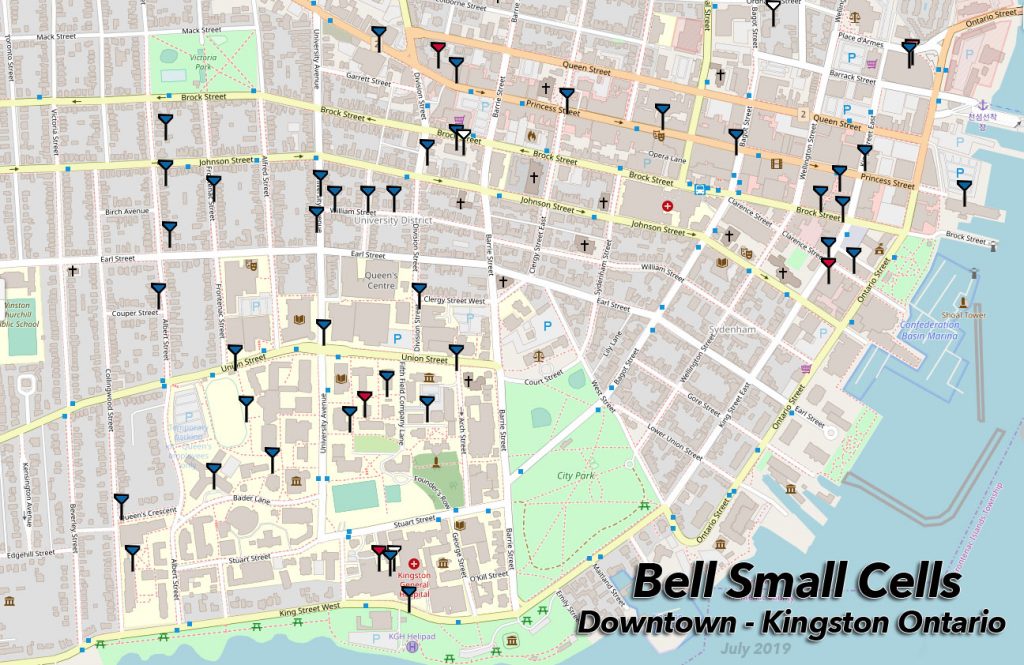Small Cells in Kingston, Ontario
Read more here : k4stblog – Response to City of Kingstons 5g
Small Cell on Brock Street, Kingston Ontario (BELL)
Bell and City of Kingston partner for Smart City program
Internet of Things data integration to improve operational efficiency, enhance city services
KINGSTON, ON, Feb. 7, 2018 /CNW Telbec/ – Kingston City Council has approved an agreement towards a public-private partnership between the city and Bell that will employ Bell’s Smart City platform to provide a series of connected Internet of Things (IoT) applications. Bell’s innovative technology will create a more mobile, efficient, collaborative and environmentally sustainable Smart City.
“Technological advances are absolutely critical and one of the key factors to our future and economic success throughout the Kingston region,” said Kingston Mayor Bryan Paterson. “A Smart City uses technology and data to improve livability and opportunities for the city and its people. This partnership with Bell will create cutting-edge technology for us and put Kingston on the map as being one of the most innovative cities in Canada and a leading Smart City, while improving everyday life for the people of Kingston.”
Supported by Bell’s advanced fibre and wireless broadband networks, the Smart City platform will aggregate data from numerous IoT monitoring solutions coupled with the city’s open data to provide municipal staff with a digital dashboard containing a consolidated, city-wide view of municipal operations. The Smart City platform will enable Kingston to digitize its operations and collect data to make better informed decisions and investments in city operations and infrastructure, benefiting constituents, internal departments and employees while improving citizen engagement.
“Bell is proud to partner with a technology and innovation leader like Kingston to realize the benefits of the Smart City,” said Bell Senior Vice President Gary Semplonius. “The Smart City platform will offer city staff a comprehensive and consolidated view of connected city services supporting better operating efficiencies, cost savings and improved services for Kingston residents, businesses and visitors.”
The first two Smart City solutions of the pilot program will be rolled out this spring:
Energy management: Energy analytics help reduce carbon emissions and meet municipal environmental targets while providing financial savings and enhanced productivity of staff through better coordinated maintenance.
Digital kiosks: Bridging the digital divide by providing Wi-Fi access, real-time event updates, charging station services, tourism promotion, remotely managed video cameras, city information and 9-1-1 emergency buttons.
“Awareness of Smart Cities has grown enormously over the past year. Municipal, provincial and federal governments realize that they can positively alter the lives of millions of urban residents with the technology and data-driven opportunities that digital transformation provides,” says Nigel Wallis, IDC Canada’s Vice President of IoT and Industries. “Smart City initiatives benefit civic institutions through provisioning sensor data that is analysed, and acted upon by staff and citizens. This makes for better decisions, made faster. IDC believes that the Internet of Things has the potential to enhance efficiency while enabling governments to deliver services in ways that were not previously possible. It is heartening to see a medium-sized city embrace IoT, showing that mid-sized towns are well positioned to take the lead as Canada’s Smart Cities.”
The Government of Canada announced $300 million in funding over 11 years in Budget 2017 towards a Smart Cities Challenge Fund. The Infrastructure Canada initiative is designed to encourage cities to improve the lives of their citizens through innovative connected technology.
The IoT solutions being implemented in Kingston are part of a Smart City program offered by Bell that will enable cities to quickly transform their operations within months so they can start collecting data, analyze insights and make smarter decisions. For more information about Bell’s IoT solutions, please visit Bell.ca/IoT.
https://www.newswire.ca/news-releases/bell-and-city-of-kingston-partner-for-smart-city-program-673114793.html
Rally speakers present concerns over 5G technology
Published on Sept 23. 2019 by Meghan Balogh, Whig Standard Newspaper
KINGSTON – Dozens gathered outside City Hall to rally against new wireless technology that members of the group Kingstonians for Safe Technology say could have negative health effects, and which they do not want to see established in their community.
The rally on Saturday morning featured short speeches by four experts who led a panel discussion inside City Hall after the demonstration, speaking about health and privacy risks of a 5G (fifth-generation) wireless network.

Dr. Riina Bray was one of three medical doctors to speak during the rally and at the expert panel that followed.
Bray is the medical director of the Environmental Health Clinic at Women’s College Hospital, and she was an associate professor in the Department of Family and Community Medicine at the University of Toronto for more than 10 years.
According to its website, the Environmental Health Clinic “was established to be the clinical part of a joint clinical and research program of Women’s College Hospital and the University of Toronto.”
Bray treats more than 1,000 people each year with environmental sensitivities at the Environmental Health Clinic, which, according to its website, offers treatment to people with chronic complex environmentally linked conditions such as myalgic encephalomyelitis/chronic fatigue syndrome, fibromyalgia and environmental sensitivities, including both multiple chemical sensitivity and electromagnetic hypersensitivity.
Bray herself has experienced electromagnetic hypersensitivity. Her personal experience set her on the medical path that she began pursuing 25 years ago.
Bray has concerns about the rollout of 5G technology, which she says will place people in close proximity to an extremely powerful technology whose health effects have not been studied.
“If you look at a clinical trial, you have consent. People are informed. You have an ethics committee to see if this is acceptable or not. There’s a protocol that you follow before you expose patients in a clinical trial that you must follow ethically, bio-ethically, and that’s not happening,” she said.
As a medical doctor who works with people who demonstrate the symptoms of electromagnetic hypersensitivity every day, Bray said that peer-reviewed scientific research demonstrates that “the link is there” when it comes to electromagnetic influences on biological function. She said three per cent of the population is severely affected, and that the number is growing.
“If you look at toxicologists, and the hard-working scientists gathering the data and publishing this stuff, that aren’t biased, you’ll see that there is tonnes of toxicology that shows the impacts on cellular function, neurological function, electrolytes, etc. That’s why we’re freaking out,” she said. “People like myself, who have five university degrees … we’re really concerned. It’s not just us. There are hundreds of scientists and doctors around the world who are really concerned.”
Bray described the technology as “many times” more powerful than current wireless networks, and with that boost in capability could come greater risk to public health.
“We don’t know. This is completely uncharted territory. People are going to be unknowingly, without consent, exposed to things that could potentially be quite severe,” she said. “As a physician in this area for a very, very long time, I’ve seen the damage that it does.
“If nothing else, it’s my experience of dealing with patients who are so, so sick.”
Andrea Loken, a member of Kingstonians for Safe Technology, told rally attendees that her teenage daughter suffers from vomiting, inflammation and rash when exposed to electromagnetic radiation caused by devices such as Wi-Fi routers.
“It’s a huge inclusion problem, and we, by ignoring this problem and by denying that these people exist, are actually denying their right to participate in society, and that is wrong,” Loken said.
Loken and others are encouraging the city to push for fibre optic-wired technology instead of permitting companies to establish 5G infrastructure in the city.
“We want a wired city,” she said. “There are economic reasons to do this. We should do this to save the climate, for our privacy — fibre optic networks are far more cyber secure. They do not emit radiation, and we will have a more inclusive society.”
A city web page states that there is no 5G infrastructure in place in Kingston, nor has the city signed any contracts with telecommunications companies for 5G service.
with files from Elliot Ferguson
https://www.thewhig.com/news/local-news/rally-speakers-present-concerns-over-5g-technology
#Kingston #Queens
